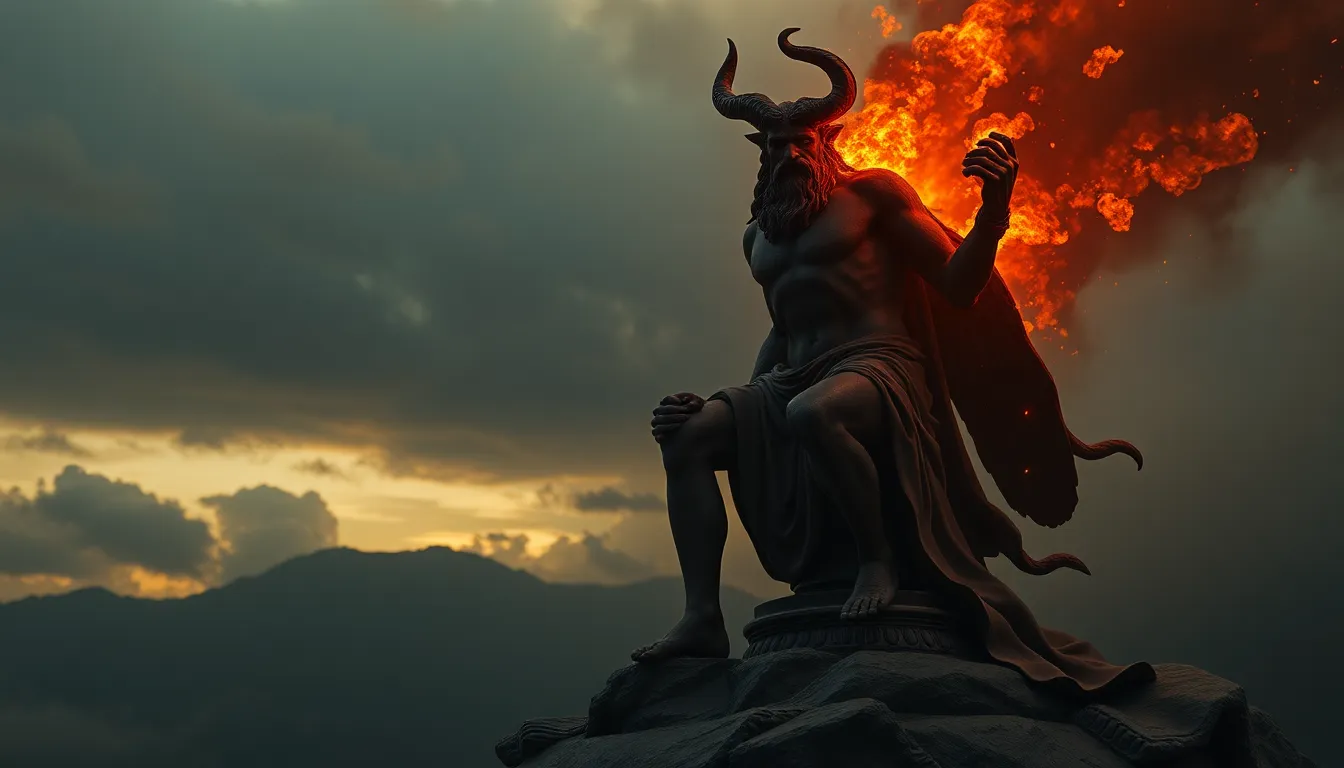Prometheus Unbound: Reinterpreting the Titan’s Legacy
I. Introduction
Prometheus, a Titan from Greek mythology, is often celebrated as a champion of humanity. His story is one that transcends time, exploring themes of rebellion, sacrifice, and the quest for knowledge. As a figure who defied the gods for the sake of human progress, Prometheus has become a symbol of enlightenment and the human spirit’s resilience. In contemporary culture, his legacy continues to resonate, inspiring discussions on morality, ethics, and the implications of scientific advancement.
This article aims to delve into the multifaceted legacy of Prometheus, examining his mythological origins, the Romantic reinterpretation of his character, modern interpretations in literature and art, and the ethical considerations that arise from his story. Through this exploration, we will uncover the enduring relevance of Prometheus in our society today.
II. The Myth of Prometheus
The myth of Prometheus can be traced back to ancient Greek literature, with early references found in Hesiod’s “Theogony” and “Works and Days.” Prometheus, whose name means “forethought,” is often depicted as a clever and resourceful figure. He is credited with the creation of humanity from clay and the theft of fire from the gods, providing it to mankind.
Key events in the myth include:
- Prometheus’s creation of mankind and his sympathy for their plight.
- The infamous theft of fire, which he hid in a fennel stalk.
- Zeus’s furious punishment: Prometheus is bound to a rock where an eagle eats his liver daily, only for it to regenerate each night.
The symbolism of fire in this myth is profound. It represents not only physical warmth and light but also knowledge, enlightenment, and the spark of civilization. By bringing fire to humanity, Prometheus ignites the flame of progress, allowing for the development of culture, technology, and society.
III. Romanticism and the Rebirth of Prometheus
The Romantic era of the late 18th and early 19th centuries saw a resurgence of interest in classical mythology, with figures like Prometheus embodying the era’s ideals of individualism and rebellion. Romantic literature often celebrated the struggle against oppression and the quest for personal freedom.
One of the most notable works from this period is Percy Bysshe Shelley’s “Prometheus Unbound,” a lyrical drama that reinterprets the myth. In this work, Shelley portrays Prometheus as a heroic figure who embodies the spirit of rebellion against tyranny. Key themes include:
- The triumph of the human spirit over oppression.
- The redemptive power of love and compassion.
- Hope and the potential for a brighter future.
Through Shelley’s lens, Prometheus transforms from a tragic figure into a symbol of hope and resistance, emphasizing the importance of striving for freedom and enlightenment.
IV. Modern Interpretations in Literature and Art
In contemporary literature, Prometheus continues to inspire a wide range of interpretations. Authors and poets draw on his legacy to explore themes of innovation, rebellion, and the human condition. Works such as Mary Shelley’s “Frankenstein” draw parallels between the Titan and the consequences of scientific ambition.
Artistic representations of Prometheus have also flourished. Artists like Gustave Moreau and Amedeo Modigliani have depicted the Titan in ways that highlight his tragic yet noble qualities. Modern adaptations often focus on:
- The struggle against oppression and the fight for justice.
- The consequences of unchecked ambition and the quest for knowledge.
- The duality of creation and destruction inherent in scientific advancement.
In this context, Prometheus emerges as a metaphor for the ongoing struggle against tyranny, reflecting the challenges faced in contemporary society.
V. Scientific and Technological Reflections
As we advance into an era marked by rapid scientific and technological progress, Prometheus’s story gains new significance. He symbolizes the pursuit of knowledge and innovation, yet his myth also serves as a cautionary tale about the ethical implications of “playing god.”
Key considerations include:
- The moral responsibilities that come with scientific discovery.
- The potential consequences of technological advancements, such as climate change and genetic engineering.
- The need for ethical frameworks in the face of innovation.
In modern discussions, Prometheus reflects the tension between progress and ethical responsibility, urging society to consider the long-term implications of its actions.
VI. Prometheus in Popular Culture
Prometheus’s legacy extends into popular culture, where he is frequently portrayed in film, television, video games, and graphic novels. These adaptations often explore his themes of rebellion and sacrifice in new and engaging ways.
Notable examples include:
- Films such as “Prometheus” (2012) and “Blade Runner,” which examine the consequences of creation and the search for meaning.
- Television series like “American Gods,” where Prometheus is referenced as a symbol of rebellion against oppressive forces.
- Video games such as “God of War,” where elements of the Promethean myth are integrated into narratives of heroism and vengeance.
These portrayals underscore the Titan’s enduring influence, showing how his legacy resonates with modern heroes and anti-heroes alike.
VII. The Philosophical Dimensions of Prometheus
The myth of Prometheus invites deep philosophical exploration. Central themes include sacrifice, knowledge, and freedom, prompting discussions about the nature of humanity and morality.
Considerations include:
- The ethical implications of seeking knowledge at any cost.
- The existential struggle for freedom and self-determination.
- Prometheus as a figure embodying the dual nature of humanity’s aspirations and failures.
As a symbol of existential struggle, Prometheus remains relevant in contemporary debates about morality, ethics, and the purpose of human existence.
VIII. Conclusion
The legacy of Prometheus is one of complexity and depth, evolving over centuries to reflect the changing values and challenges of society. From his origins in Greek mythology to his reinterpretation in Romantic literature and modern culture, Prometheus embodies the enduring spirit of rebellion and the quest for knowledge.
As we navigate an increasingly complex world, the story of Prometheus serves as a reminder of the importance of ethical considerations in our pursuit of progress. His tale encourages us to reflect on our responsibilities as we strive for enlightenment and innovation, ensuring that the lessons of the past guide our actions for future generations.




